SRM Is Stuck Between Desire and Possibility
Adelina Marini, November 20, 2013
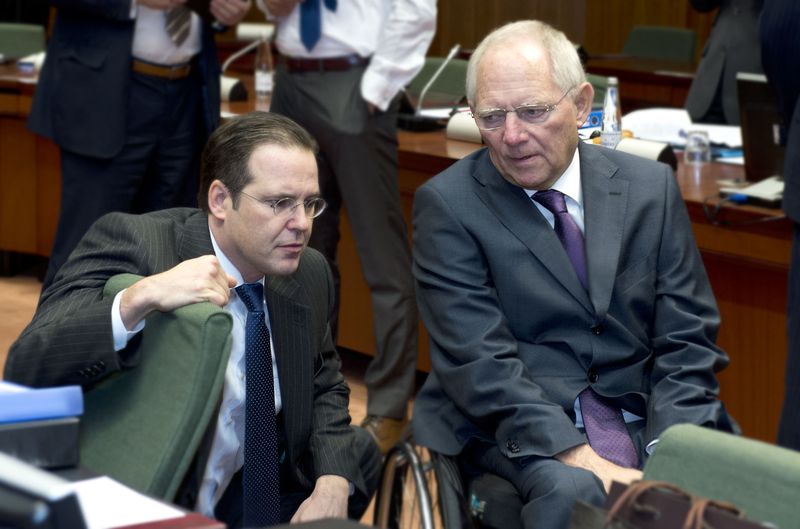 Everyone in the EU agree that an agreement on the second pillar of the banking union must be achieved by the end of the year, but they are aware of the many uncertainties the clarification of which is, on the one hand, dependent on the coalition negotiations in Germany and, on the other, on finding the right balance between the eurozone countries and the non-euro area member states. The link with the negotiations on a new governing coalition in Berlin is that it depends on the outcome of the negotiations whether Germany would prefer more European integration or it would choose the intergovernmental approach. On November 15th the finance minster of the EU cancelled the planned discussion in ECOFIN on the framework for bank recovery and resolution because they said they needed more time to iron the differences on key issues. With the same argument, the economic committee of the European Parliament postponed on November 18th the voting on the directive on the Single Resolution Mechanism (SRM) for December 5th (instead of the initially planned November 26th).
Everyone in the EU agree that an agreement on the second pillar of the banking union must be achieved by the end of the year, but they are aware of the many uncertainties the clarification of which is, on the one hand, dependent on the coalition negotiations in Germany and, on the other, on finding the right balance between the eurozone countries and the non-euro area member states. The link with the negotiations on a new governing coalition in Berlin is that it depends on the outcome of the negotiations whether Germany would prefer more European integration or it would choose the intergovernmental approach. On November 15th the finance minster of the EU cancelled the planned discussion in ECOFIN on the framework for bank recovery and resolution because they said they needed more time to iron the differences on key issues. With the same argument, the economic committee of the European Parliament postponed on November 18th the voting on the directive on the Single Resolution Mechanism (SRM) for December 5th (instead of the initially planned November 26th).
The issue of bank resolution and recovery was scheduled to be publicly discussed by the EU finance minsters on November 15th, but instead the Lithuanian Council Presidency produced a statement with a main focus on the huge desire and readiness of all ministers to fit into the deadline set by the heads of state or government to agree by the end of the year. For this purpose an ad hoc working party will be established to explore ways how this can happen. The party's work will be based on several key principles with the main aim, which sounds more like a wishful thinking rather than something essential at this stage, the creation of a strong banking union, whatever is behind the word "strong". As a matter of fact, two are the possible interpretations of the word "strong" in this case - a common European one and an intergovernmental.
The first principle that will guide the working party will be the scope of the SRM. The point of departure should be that it should cover all banks authorised in the participating countries. The problem is how to enhance the role of the national resolution authorities bearing in mind that the national supervisory authorities have a leading role in supervising the less significant banks in the single supervisory mechanism (SSM). This, in other words, means that a way will be sought to protect national 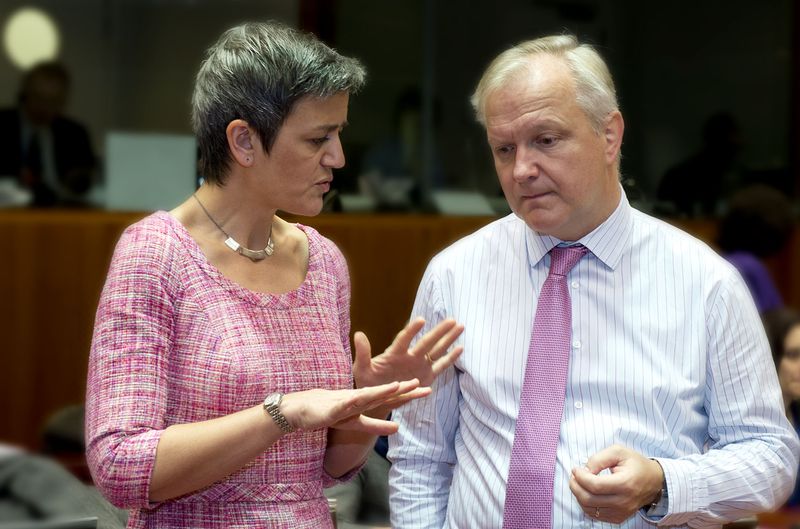 sovereignty while, in the same time, a supranational solution is ensured or, as Polish MEP from the EPP group Danuta Hubner explained supervision at national level but resolution at central level.
sovereignty while, in the same time, a supranational solution is ensured or, as Polish MEP from the EPP group Danuta Hubner explained supervision at national level but resolution at central level.
What will the governance structure of the SRM be is the second guiding principle. The working party will be tasked to find a balance between the voting weight with the possible participation of the Council. The difficulty stems from the fact that the expectations are this mechanism to be able to take quick and efficient decisions which banks should be resolved, which is why it is of great importance how will the votes be distributed within the SRM governing board. The second principle is directly linked to the third which relates to the structure of the resolution fund. There is no consensus in the Council on this issue either. The Presidency proposes work to be directed toward a common European fund instead of a system of national funds. As problematic an issue, although not outlined as a guiding principle in the working group, is also how will the fund be filled, especially in the transition period until it accumulates sufficient money.
Fourth, but not in significance, is the principle about the contractual relations and the equal treatment of participating countries and those who prefer to stay outside because they will continue to be hosts of subsidiaries of parent banks of the participating member states.
The negotiations in the Council are very tough, as Lithuania's Finance Minster Rimantas Sadzius admitted, to a large extent due to the "political calendar in different member states [which] has implications on the European agenda". He underscored, though, that work with the current German caretaker government is still possible and that Minister of Finance Wolfgang Schäuble participates very actively in the discussions. "I don't think this is the main reason for not having an agreement today", he said and added that the resolution mechanism is much more complex than the supervisory one, the adoption of which was also tough but happened on time in the beginning of the year. Mr Sadzius admitted, however, that "approximation" is not the right term. Nonetheless, he hoped that a compromise is possible.
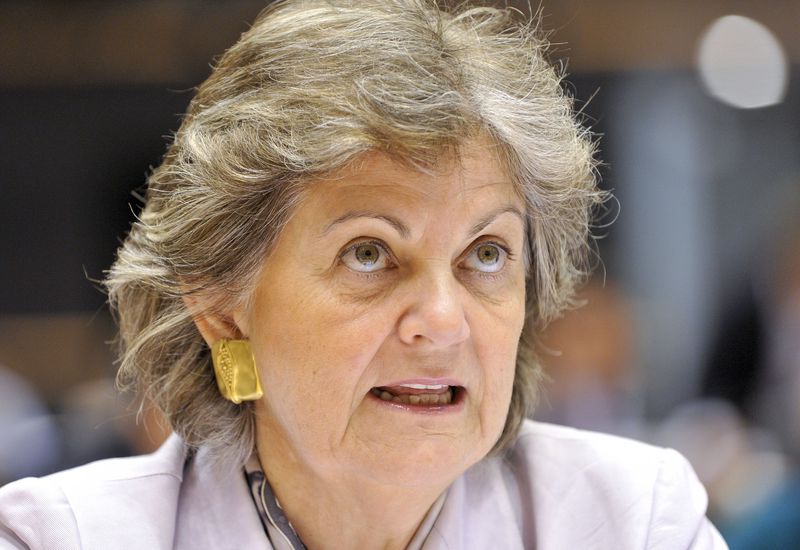 In the European Parliament economic committee the negotiations are also very difficult. There, the situation is even more complex because the main rapporteur on the issue, Portuguese MEP Elisa Ferreira (Socialists&Democrats), preferred to unite into a single report the directive for bank resolution and the proposal for a single resolution mechanism (SRM). The committee chair, Sharon Bowles (ALDE, UK), concluded the debate on the report on October 14th saying her reservations were growing because, in her words, it was very complicated to discuss the two proposals simultaneously. The main document in the part of the internal recapitalisation (bail-in) covers the entire European Union which makes it impossible part of the EU to undertake different actions for bank resolutions. "It would be really unpleasant if while taking part in the supervisory mechanism you end up in an unfavourable situation", she said then.
In the European Parliament economic committee the negotiations are also very difficult. There, the situation is even more complex because the main rapporteur on the issue, Portuguese MEP Elisa Ferreira (Socialists&Democrats), preferred to unite into a single report the directive for bank resolution and the proposal for a single resolution mechanism (SRM). The committee chair, Sharon Bowles (ALDE, UK), concluded the debate on the report on October 14th saying her reservations were growing because, in her words, it was very complicated to discuss the two proposals simultaneously. The main document in the part of the internal recapitalisation (bail-in) covers the entire European Union which makes it impossible part of the EU to undertake different actions for bank resolutions. "It would be really unpleasant if while taking part in the supervisory mechanism you end up in an unfavourable situation", she said then.
The situation on Monday evening, when the committee gathered again to discuss the issue, was not much different. So far more than a thousand proposals for amendments have been filed to the report of the Portuguese MEP. Ms Ferreira pointed out that there were MEPs, representing certain member states which she did not name, who were trying to pass certain solutions, but for the moment they were not a majority. The main differences are related to the establishment of backstops to help failing banks in the period until the resolution fund is filled with money from bank levies. At this stage, there is a consensus in the economic committee such assistance to be provided in the form of a credit line provided by the fund in the initial phase.
The members of the committee are on their way to reach a consensus, but obviously there still is no unanimity, on another important issue - the hierarchy for implementation of bail-in. The European Parliament is convinced, though, that the shareholders and then the creditors should take losses in case a bank is failing. On the size of the fund there is no agreement, too, at this stage in the committee. Dutch MEP Corien Wortmann-Kool (EPP) outlined the main problem in the debate, which is that the SRM is only a part of the overall jigsaw puzzle. The fact that work is still ongoing on the directive for bank resolution and recovery as well as on the deposit guarantee scheme makes the task very complicated. Work should go in parallel, she believes. Another concern she raised is that because of the constraints 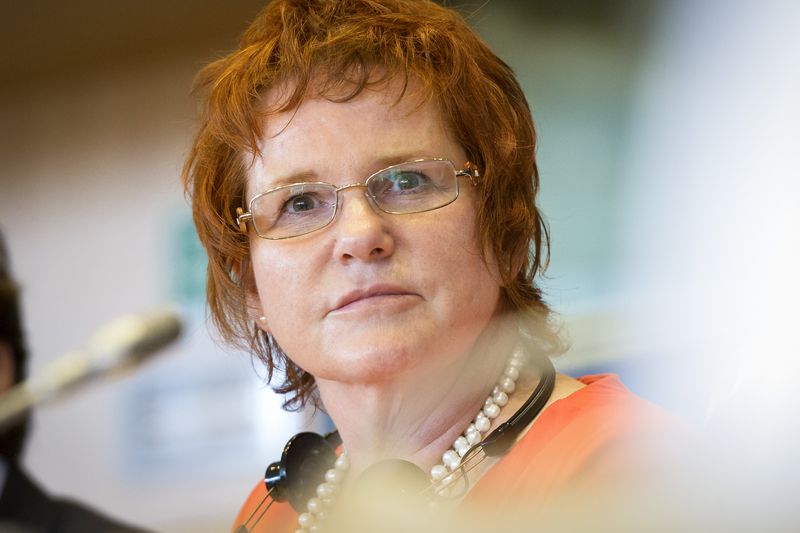 of the EU treaties there is a great danger the member states to prefer the intergovernmental approach (as happened with the fiscal compact and the euro plus pact), instead of the community one.
of the EU treaties there is a great danger the member states to prefer the intergovernmental approach (as happened with the fiscal compact and the euro plus pact), instead of the community one.
From the words of the Dutch MEP, who is also a shadow rapporteur on the issue, it also became clear that there is no agreement on the composition of the SRM governing board as well as on the issue who will take the decision about the resolution of failing banks. According to Liberal MEP Wolf Klinz (Germany), the Commission is not the best solution to play the role of a resolution body because it lacks democratic legitimacy. The decisions this authority is to take will have deep implications and that is why it is important who will take them. He discussed in much more detail the issue with the voting weight in the governing board, pointing out that the votes of the home and host countries cannot be equal in weight. Sometimes, the subsidiaries in the host countries are much bigger than their parents in the home countries. Such is the case with UniCredit Bank whose subsidiary in Germany, for instance, is much bigger than the mother in Italy.
Another shadow rapporteur in the Greens group, Sven Giegold (Germany), also underlined that it is important the decision for resolution to be taken centrally, emphasising that this is not a decision that is to be taken everyday, unlike supervision. He suggested that Germany, with the help of allies, will succeed in preventing a European solution in the Council and called on his colleagues the European Parliament to fight for strong European solutions that will cover the banks in their diversity. Sharon Bowles touched upon another problem in the report, which relates to the definition what state aid is. According to her, it should not be allowed the assistance for resolution of banks provided by countries which are not members of the supervisory mechanism to be called state aid, while the assistance provided for banks within the supervisory system not to be treated as state aid. It is also important to better address the problem with subsidiaries that are not part of the SSM, the chair of the European Parliament economic committee concluded.
From the debate on Monday evening in the beginning of the November plenary it also became clear that currently work is ongoing on several parallel draft legislations which are directly linked. For instance, the MEPs expect the European Commission to present its proposal about the bank levy that will finance the resolution fund, but a Commission representative said this would be impossible until work is completed on the bank resolution directive and the SRM. He added that at this stage it was 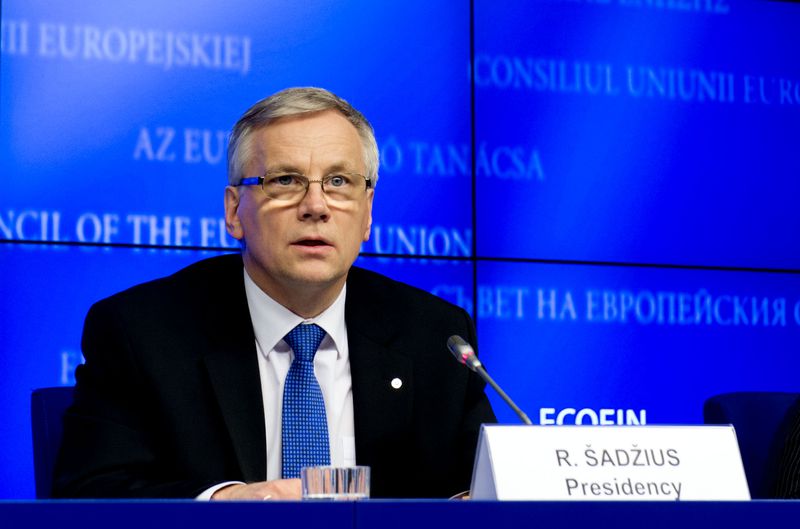 certain that the levy will be risk-based, as it is defined in the bank resolution directive and regulation. The banks with low risk will have a lower contribution to the fund.
certain that the levy will be risk-based, as it is defined in the bank resolution directive and regulation. The banks with low risk will have a lower contribution to the fund.
Against the backdrop of precisely the parallel work on key legislations, the expectations that an agreement could be reached before Christmas on the SRM is quite a wishful thinking. The voting in the economic committee is scheduled for December 5th, while the EU finance ministers will go back to the issue on December 10th. Let's hope that by then at least there will be a new governing coalition in Germany. Otherwise, the chances the second pillar of the banking union to be adopted before the end of the term of this Parliament are dropping significantly.
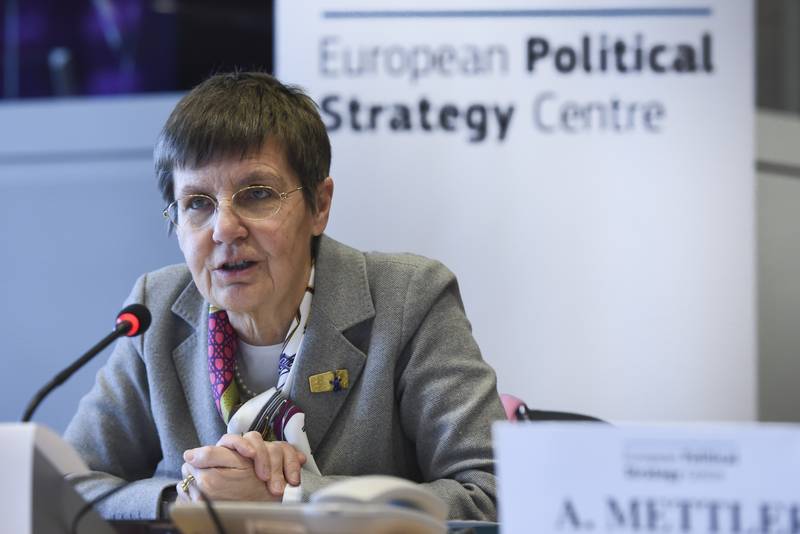 Elke Koenig | © European Commission
Elke Koenig | © European Commission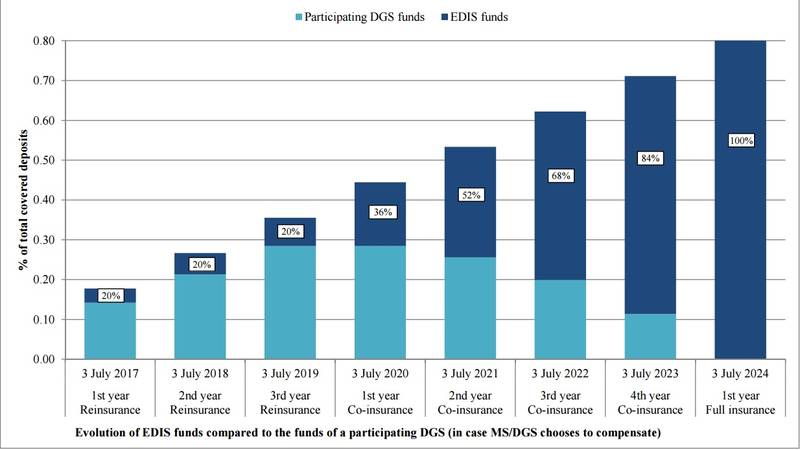 | © European Commission
| © European Commission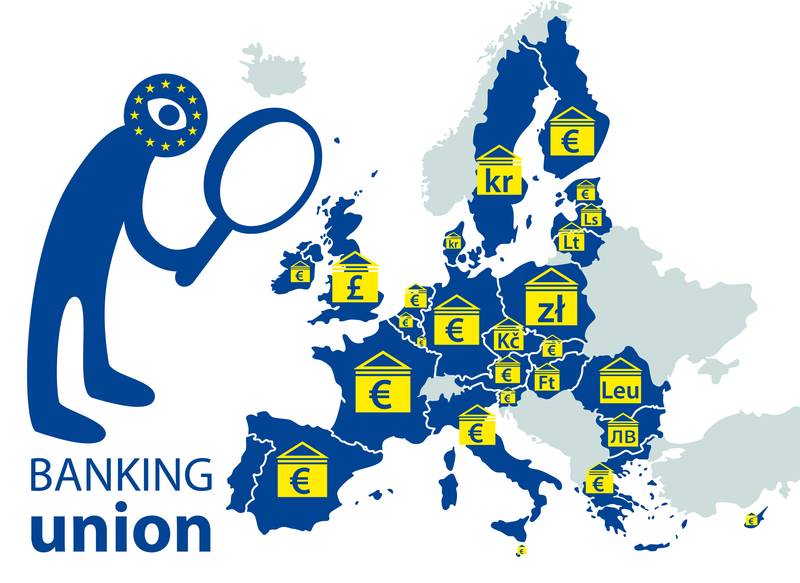 | © European Parliament
| © European Parliament